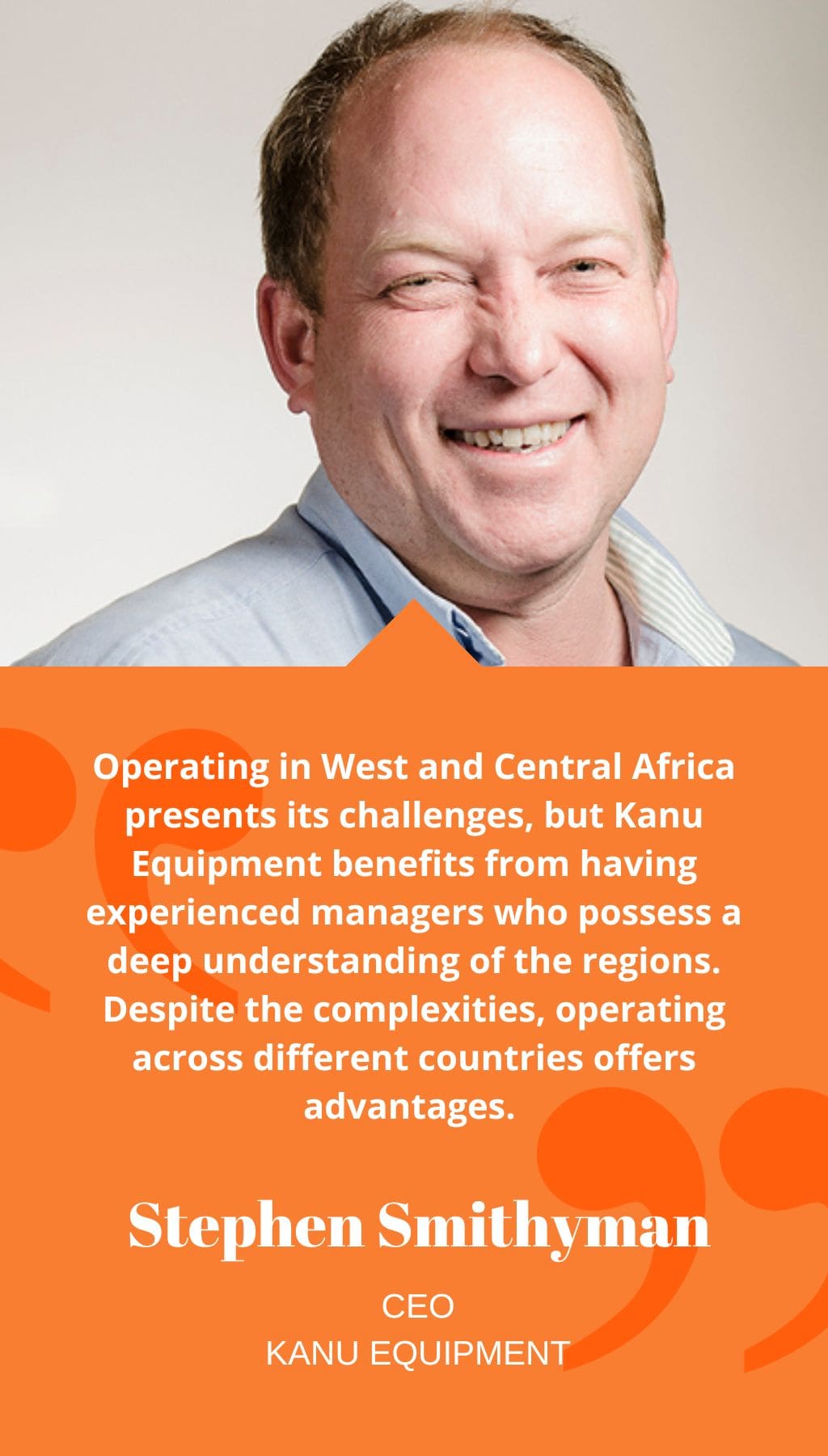
- Tanzania | 30 April 2022

How has Kanu Equipment successfully navigated the challenges brought by the pandemic?
Kanu Equipment has overcome the obstacles presented by the pandemic by relying on strong local partnerships. Unlike some competitors, the company benefits from having experienced personnel and established on-the-ground infrastructure. This has proven to be a significant competitive advantage and has allowed Kanu Equipment to consistently provide support during these challenging times. The company has focused on strengthening relationships with stakeholders, clients, suppliers, and their own employees.
In what ways do you believe the pandemic will accelerate digitalization and innovation?
The pandemic has disrupted key supply chain links, particularly from Europe, leading to expensive airfreight and travel restrictions. In response, companies need to adapt by increasing the use of technology. Kanu Equipment has already been utilizing digital platforms for international communication, but the pandemic has further accelerated their reliance on technology. For example, when a client in Ghana faced a technical issue with a crane, Kanu Equipment’s crane specialist in South Africa was able to remotely resolve the problem. Additionally, suppliers now offer online training courses, allowing more people to be trained at a lower cost. The pandemic has demonstrated that productive remote work is possible and that strong customer relationships can be built and maintained virtually.
Can you provide a brief overview of Kanu Equipment’s reach and market position in Africa?
Kanu Equipment aims to be the most supportive mining and construction dealership in Africa. The company sees Africa as a region with opportunities for multi-directional growth. While focusing on expanding in Eastern Africa, specifically in Rwanda and Uganda, Kanu Equipment is also considering opportunities in Zambia. Their growth strategy revolves around meeting the needs of their customers and suppliers.
What are your perspectives on the current mining sector opportunities in West Africa and the Copperbelt?
West Africa, particularly in Ghana and Ivory Coast, is experiencing incremental growth, driven by the gold sector. These countries have succeeded in attracting and retaining investors. The Copperbelt region, however, remains volatile, while opportunities in Botswana and Tanzania, to the south, look promising. Looking ahead, the mining industry is likely to move more towards underground operations. Kanu Equipment is already establishing partnerships to facilitate this transition for their clients. Stable policy frameworks and long-term perspectives from governments will be crucial for Africa to thrive in the mining sector.
How effective do you find local content policies in facilitating skills transfer?
Local content policies are important for both industry development and skills transfer in the mining sector. Kanu Equipment strives to develop local expertise, ensure optimal health and safety, and strengthen its position in host countries. The company aims to provide economic freedom to its staff, whether through supporting employees’ children’s education or equity ownership opportunities. Kanu Equipment is already incorporated as a local company in the Democratic Republic of Congo and Tanzania, and they are also exploring opportunities in Ghana.
How does Kanu Equipment assist clients in optimizing costs?
As a relatively small business, Kanu Equipment closely monitors costs and maintains tight control over expenses. This allows them to pass on reduced costs to their customers. Additionally, their machines are cost-effective, with Liebherr machines being particularly efficient, and Bell products positioned favorably on the cost curve. Cost optimization is achieved through collaboration with customers and leveraging Kanu Equipment’s own mining experience. By working together, they can optimize machinery usage and production. The company’s success is closely linked to the success of their customers, fostering a mutually beneficial relationship.
What are the challenges and opportunities of operating across borders, particularly in West and Central Africa?
Operating in West and Central Africa presents its challenges, but Kanu Equipment benefits from having experienced managers who possess a deep understanding of the regions. Despite the complexities, operating across different countries offers advantages. For instance, if a part is needed in Ivory Coast, it can be easily delivered from Ghana, which is just a three-hour drive away. Kanu Equipment’s regional footprint is also valuable in cases of technical breakdowns, as they can mobilize mechanics from one country to another and utilize available resources. Regional integration efforts, such as ECOWAS, facilitate the movement of people, enabling knowledge and skills transfer between countries. Additionally, the upcoming AfCFTA agreement, set to be enacted in 2021, is expected to significantly enhance trade facilitation and unlock Africa’s vast potential, contributing to rapid growth in the continent.














